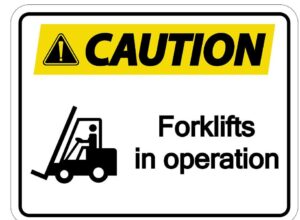Navigating Challenges in Lift Truck Handling: Strategies for Safety and Efficiency
Introduction
In the dynamic world of warehousing and logistics, lift trucks play a crucial role in moving goods efficiently and effectively. However, their operation comes with unique challenges that can impact both safety and productivity. This article explores common issues faced in lift truck handling and offers practical strategies to overcome them, ensuring a smoother and safer workflow.
Understanding the Challenges
Operating a lift truck requires a blend of skill, attentiveness, and adherence to safety protocols. Some of the most common challenges include:
 Forklift | China Manufacturer Trade Price on Materials Handling lift Truck, Stackers, Industrial vehicles, Scrubbers, Transporters brands Sale Price Buy Online | Forklift
Forklift | China Manufacturer Trade Price on Materials Handling lift Truck, Stackers, Industrial vehicles, Scrubbers, Transporters brands Sale Price Buy Online | ForkliftLoad Stability and Balance: Ensuring that loads are correctly balanced and secure is critical to prevent accidents. Improperly handled loads can tip over, causing injury and damage.
Workplace Hazards: Warehouses are filled with potential hazards such as uneven surfaces, narrow aisles, and high shelving. These obstacles require operators to be constantly vigilant.
Operator Fatigue: Long hours and repetitive tasks can lead to fatigue, reducing the operator's reaction time and increasing the likelihood of errors.
Training and Skill Level: A well-trained operator is essential for safe lift truck operation. Inadequate training can result in poor decision-making and unsafe practices.
Maintenance and Equipment Condition: Regular maintenance of lift trucks is necessary to ensure they are in optimal working condition. Neglecting maintenance can lead to equipment failure and safety risks.
Strategies for Overcoming Challenges
To navigate these challenges, a multifaceted approach is required. Here are some effective strategies:
Comprehensive Training Programs: Investing in comprehensive training for all lift truck operators is vital. Training should cover not only the technical aspects of operating the truck but also the importance of safety protocols and hazard awareness.
Regular Maintenance and Inspections: Implementing a rigorous maintenance schedule ensures that lift trucks remain in good working condition. Routine inspections can help identify and address potential issues before they become serious problems.
Ergonomic Practices: Encouraging operators to use ergonomic practices can reduce fatigue and improve efficiency. This includes adjusting seats, using proper lifting techniques, and taking regular breaks.
Safety Protocols and Technology: Utilizing safety technology such as backup alarms, cameras, and stability control systems can enhance operational safety. Additionally, establishing clear safety protocols and enforcing them consistently is crucial.
Load Management Techniques: Proper load management techniques should be emphasized during training. This includes understanding load limits, ensuring even distribution, and using securing devices when necessary.
Creating a Safety Culture: Fostering a culture of safety within the workplace can make a significant difference. Encouraging open communication about safety concerns and rewarding safe practices can help build this culture.
Conclusion
Navigating the challenges of lift truck handling requires a proactive and well-rounded approach. By prioritizing training, maintenance, ergonomic practices, and safety technology, organizations can improve both safety and efficiency. Creating a culture that values safety and continuous improvement will ultimately lead to a more productive and secure working environment for all.